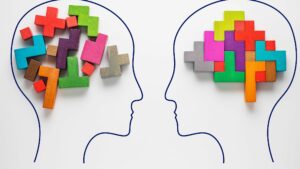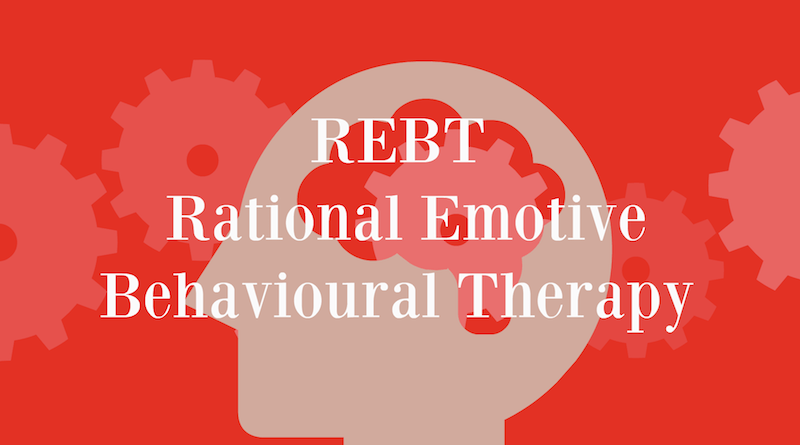What is Rational Emotive Behavior Therapy (REBT)? It is a comprehensive form of psychotherapy that was created by Albert Ellis in the 1950s. The goal of REBT is to help people identify and change irrational beliefs, which can lead to dysfunctional emotions and behaviors. In this blog post, we will discuss the history of REBT, as well as its principles and techniques. We will also explore how REBT can be used to treat various mental health disorders.
Contents
Defining Rational Emotive Therapy

Rational emotive therapy, also known as REBT, is a form of cognitive-behavioral therapy that was developed by psychologist Albert Ellis in the 1950s. The goal of REBT is to help people identify and change irrational beliefs, which can lead to dysfunctional emotions and behaviors.
REBT is based on the premise that our thoughts, not external events, determine our feelings and actions. This means that it is not the event itself that causes us distress, but rather our interpretation or beliefs about the event. For example, if you get laid off from your job, you may interpret this as a personal failure and feel worthless as a result. However, if you view getting laid off as an opportunity for growth and change, you may feel empowered and motivated to find a new job.
It is important to note that REBT is not a form of denial. The goal is not to pretend that negative events don’t exist or try to ignore your feelings. Rather, REBT helps you to examine your beliefs about these events and develop more balanced, realistic, and helpful perspectives.
Techniques Used In REBT

There are a variety of techniques that are used in REBT.
- One of the most common is disputing or challenging irrational beliefs. This involves looking at the evidence for and against your beliefs, as well as identifying any other possible explanations. For example, let’s say you believe that you must always be perfect in order to be loved and accepted. You may dispute this belief by looking at times when you were imperfect but still loved and accepted. You may also consider other possible explanations, such as the fact that people are capable of loving others despite their flaws.
- Other techniques that may be used in REBT include role-playing, journaling, and relaxation training. These techniques can help you to practice new ways of thinking and behaving, as well as to cope with stressful situations in a more effective manner.
- REBT is also based on the ABC model, which consists of three components: Activating events, Beliefs, and Consequences.
- The activating event is the external or internal event that triggers our emotions. For example, getting laid off from your job would be an activating event.
- Beliefs are the thoughts or interpretations that we have about the activating event. In the example above, the belief would be that getting laid off is a personal failure.
- Consequences are the emotions and behaviors that result from our beliefs. In the example above, the consequence would be feeling worthless.
The ABC model is helpful because it shows how our thoughts influence our emotions and actions. By changing our beliefs, we can change our emotional and behavioral responses to events.
Principles of REBT

There are four basic principles of REBT:
- Unconditional self-acceptance: This principle states that we must accept ourselves unconditionally, even if we have made mistakes or done things that we are not proud of. We are human beings, and we all have flaws. Unconditional self-acceptance means accepting yourself for who you are, not who you think you should be.
- Unconditional other-acceptance: This principle states that we must accept others unconditionally, even if they have done things that we don’t agree with or approve of. We must remember that everyone is entitled to their own opinions and beliefs, even if we don’t share them.
- Conditional life-acceptance: This principle states that we must accept life as it is, not as we want it to be. Life is full of ups and downs, and we cannot control everything that happens to us. We must learn to roll with the punches and accept the things that we cannot change.
- Flexible preference: This principle states that it is okay to have preferences, but we must be flexible in our expectations. We cannot expect life to always go our way, and we must be willing to adapt when necessary.
Applying REBT to Everyday Life
Now that you know the basics of REBT, let’s explore how it can be applied to everyday life. Below are some common situations where REBT can be helpful:
- Dealing with anger: REBT can help you to identify and challenge the irrational beliefs that are causing your anger. Once you have identified these beliefs, you can start to develop more balanced and helpful perspectives.
- Dealing with relationship issues: REBT can help you to identify and challenge the irrational beliefs that are causing your relationship issues. Once you have identified these beliefs, you can start to develop more balanced and helpful perspectives.
- Dealing with work stress: REBT can help you to identify and challenge the irrational beliefs that are causing your work stress. Once you have identified these beliefs, you can start to develop more balanced and helpful perspectives.
How REBT Can Be Used to Treat Mental Health Disorders
REBT has been found to be an effective treatment for a variety of mental health disorders, such as anxiety, depression, eating disorders, substance abuse, and stress-related disorders. In fact, a number of studies have shown that REBT is as effective as other forms of cognitive-behavioral therapy in the treatment of these disorders.
One study found that REBT was particularly helpful in treating patients with post-traumatic stress disorder (PTSD). The study found that those who received REBT had significantly lower levels of PTSD symptoms than those who did not receive REBT.
These disorders are often characterized by irrational beliefs, and REBT can be used to help challenge and change these beliefs. If you think that REBT could be helpful for you, please talk to your doctor or mental health professional.
Benefits
REBT has a number of benefits.
- First, it is a relatively short-term treatment. Many people who receive REBT find that their symptoms improve within a few weeks or months.
- Second, REBT is a skills-based approach, which means that it teaches you how to identify and challenge your irrational beliefs. This can help you to prevent future episodes of mental health problems.
- Third, REBT is an evidence-based approach, which means that it has been proven to be effective in the treatment of mental health disorders.
If you are looking for a short-term, skills-based approach to treating your mental health disorder, then REBT may be right for you.
Drawbacks
REBT is not without its drawbacks.
- First, it can be difficult to identify your irrational beliefs. This process may require the help of a trained professional.
- Second, REBT may not be appropriate for everyone. If you have a complex mental health disorder, REBT may not be the best treatment option for you.
- Third, REBT can be challenging. The process of identifying and changing your irrational beliefs can be difficult and frustrating. If you are struggling to identify your irrational beliefs or find the process of changing them to be too challenging, then REBT may not be right for you.
It is important to talk to your doctor or mental health professional before you start any treatment. This will help you to determine if REBT is the right option for you.
Finding an REBT Specialist

If you are interested in finding an REBT specialist, there are a few things you can do.
First, you can talk to your doctor or mental health professional. They may be able to refer you to an REBT specialist in your area. You can also search the internet for “REBT specialists” or “REBT therapists.” This will provide you with a list of specialists in your area. Referrals from friends or family may also be helpful.
After sourcing the references, you can proceed to schedule a consultation call with your potential therapists. You can ask them about their experience with REBT and whether they think it would be a good fit for you. Some of the questions you can ask for may include:
- How long have you been practicing REBT?
- What is your experience with treating mental health disorders?
- Do you think REBT would be a good fit for me?
- What are your fees?
- What are the potential benefits and drawbacks of REBT?
During the consultation call, it is important to trust your gut. If you feel like the therapist is not a good fit for you, then you can move on to another specialist. It is important that you find a therapist who you feel comfortable with and who you think will be able to help you achieve your treatment goals.
After the call, you can decide whether or not to schedule an appointment with the therapist. Choosing the right therapist is an important decision, so be sure to take your time to find your right fit.
Conclusion
REBT is a cognitive-behavioral therapy that helps people identify and challenge their irrational beliefs. REBT has been found to be an effective treatment for a variety of mental health disorders, such as anxiety, depression, eating disorders, substance abuse, and stress-related disorders. If you think that REBT could be helpful for you, please talk to your doctor or mental health professional.
If you are looking for a trustworthy and reliable place to begin your mental health treatment journey, consider Mantra Care! We have a team of expert mental health professionals available from all across the world. Our therapy services are available at pocket-friendly rates with a guarantee of maximum safety and effectiveness. Contact us today to book a session or download our free Android or iOS app for more information!


